TOUCH OF VANITY - STYLE
Nao Serati: Designing for an ‘other’ space
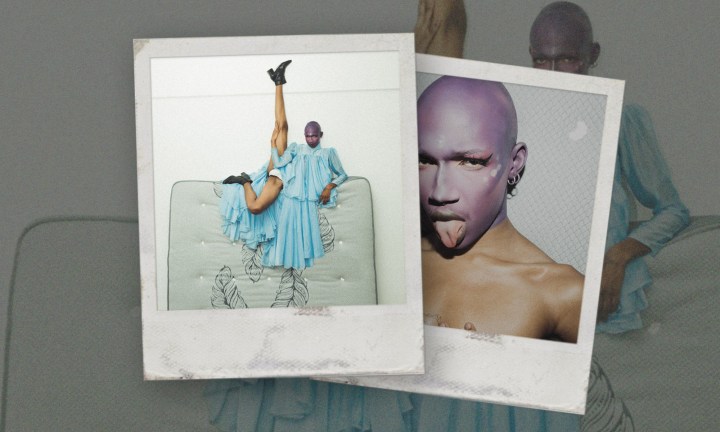
Neo Serati is a young designer at a crossroads: he is reflecting on his earlier work while trying to define the future of his brand in a country where he feels there aren’t enough safe spaces to express style that goes beyond societal norms.
“I don’t feel like I have to water my work down right now. I’m not forced to make those kinds of garments. I’ve tested the waters… going into that sort of consumable garment, but I still feel like there’s a necessity for other stories,” says 27-year-old designer Neo Serati
“I don’t feel like we all have to make kaftans or dresses with flounces. I really feel there are those people that are still interested in another world; in more languages.”
In 2014 he founded his fashion label, Nao Serati, and by 2016 had become a regular fixture on the South African Menswear Week (SAMW) runway.
From the outset, the play on gender and sexuality, and questioning “who’s allowed to wear what”, was evident in his collections. In his own words, he defines his brand as specialising in “unisex garments that explore the margins of gender, art and sexuality, while bearing in mind their South African heritage.
“Nao Serati is all about a dialogue which interrogates, dissects and often subverts what it is to be in modern-day Africa.”
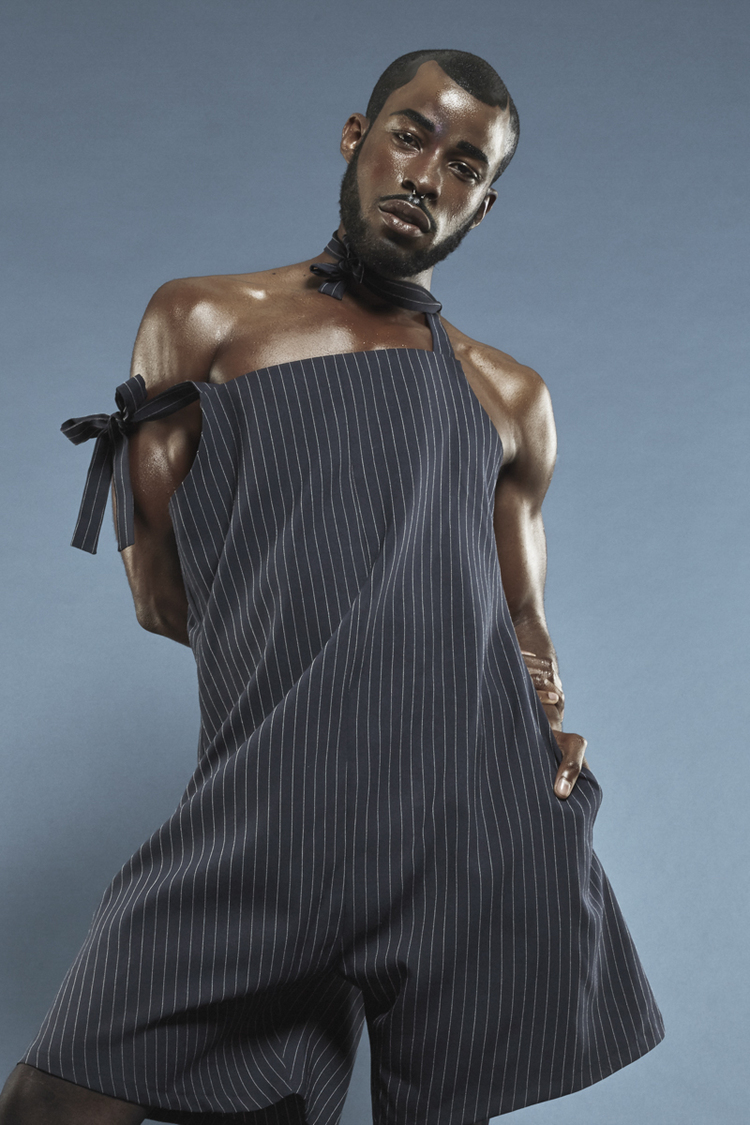
Nao Serati 2016 Lookbook. Photo by Aart Verrips
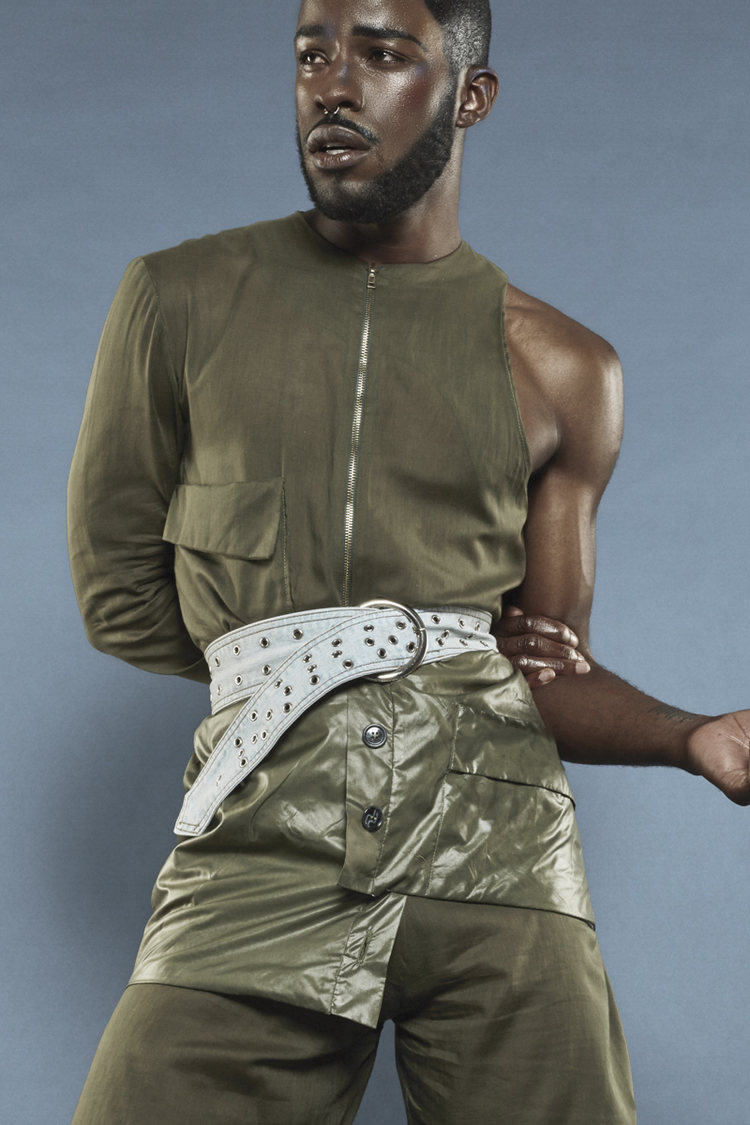
Nao Serati 2016 Lookbook. Photo by Aart Verrips
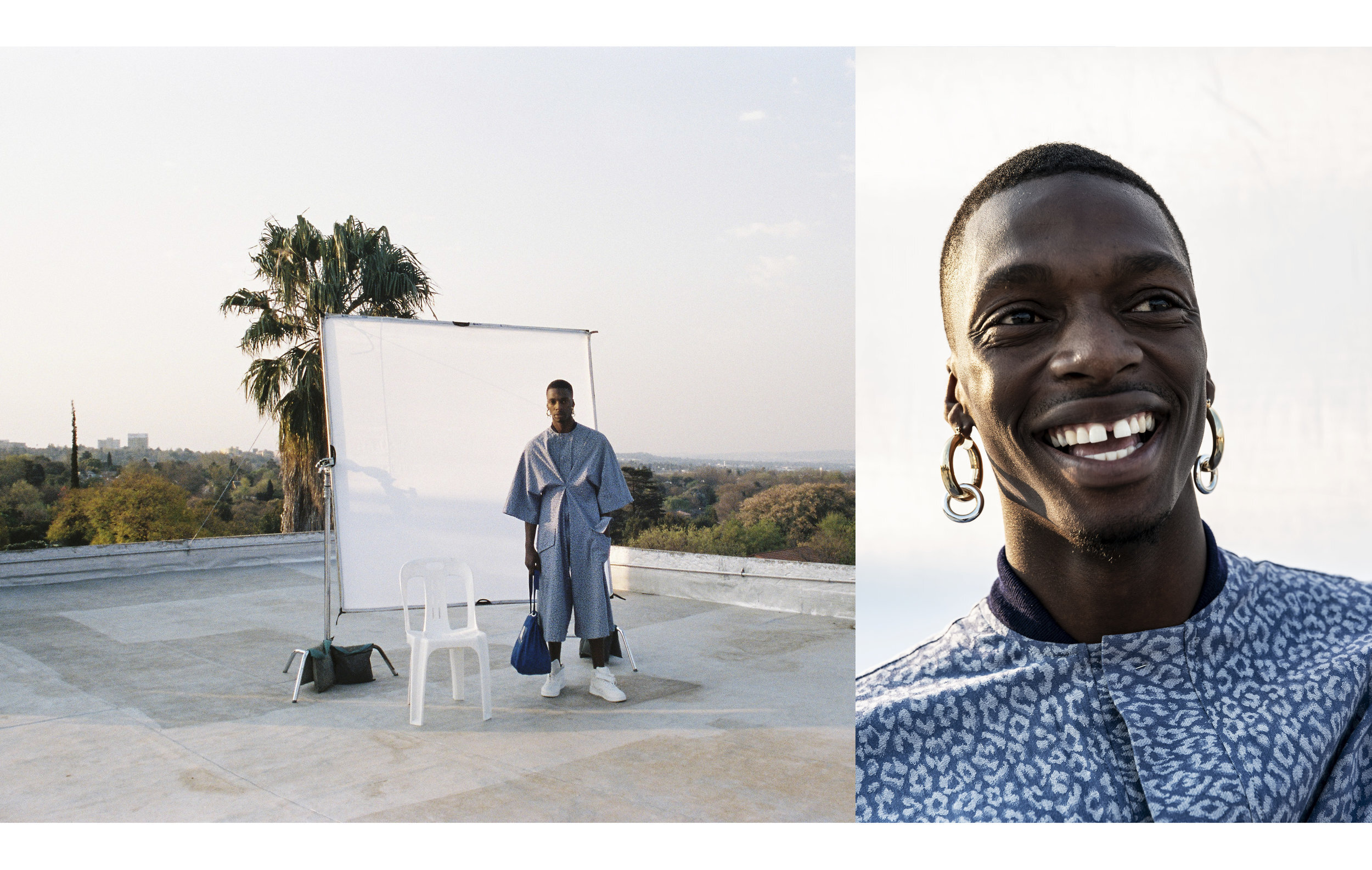
Nao Serati 2018 Lookbook. Photo by Tatenda Chidora, Galerekwe Maimane
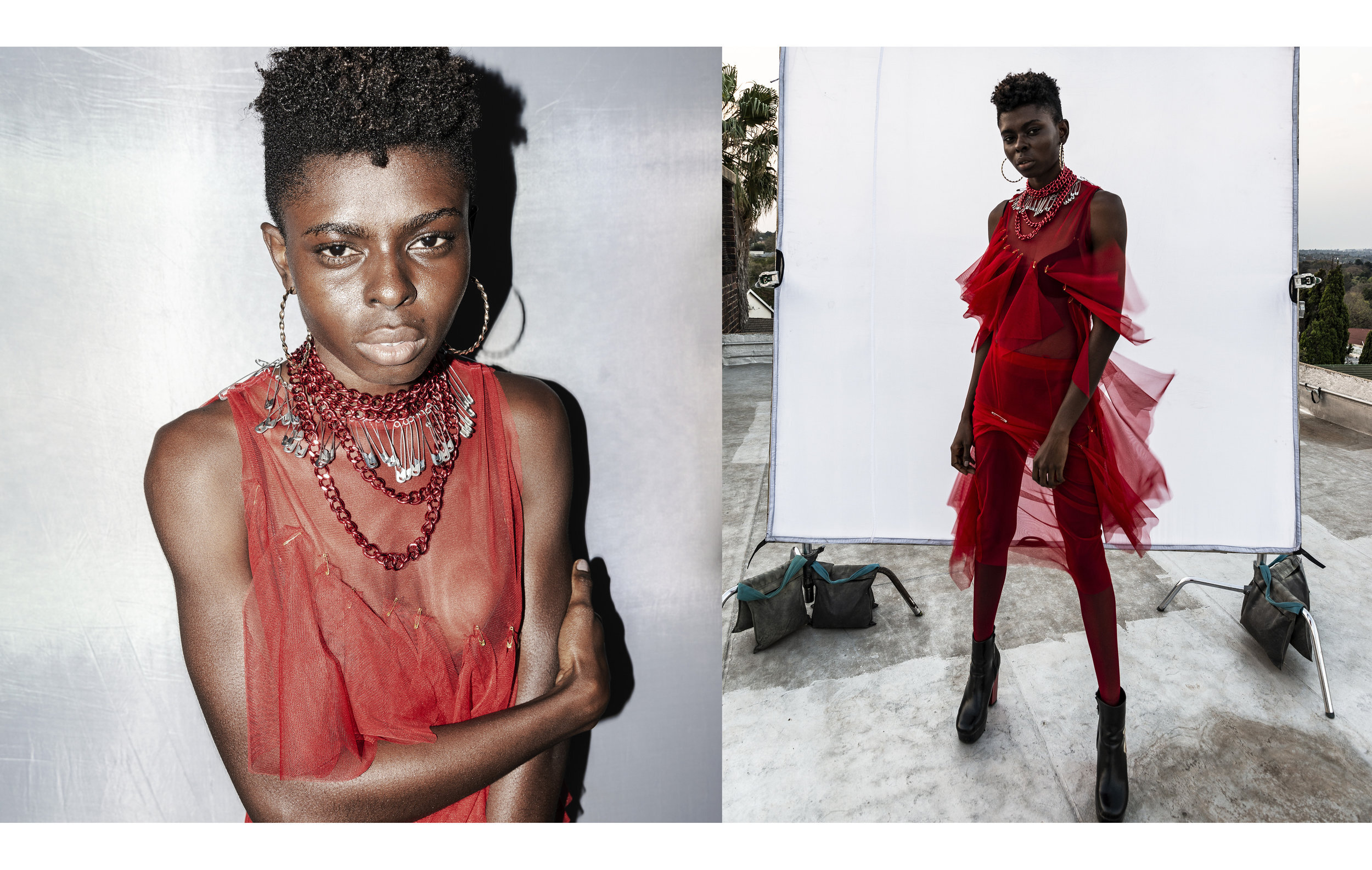
Nao Serati 2018 Lookbook. Photo by Tatenda Chidora, Galerekwe Maimane
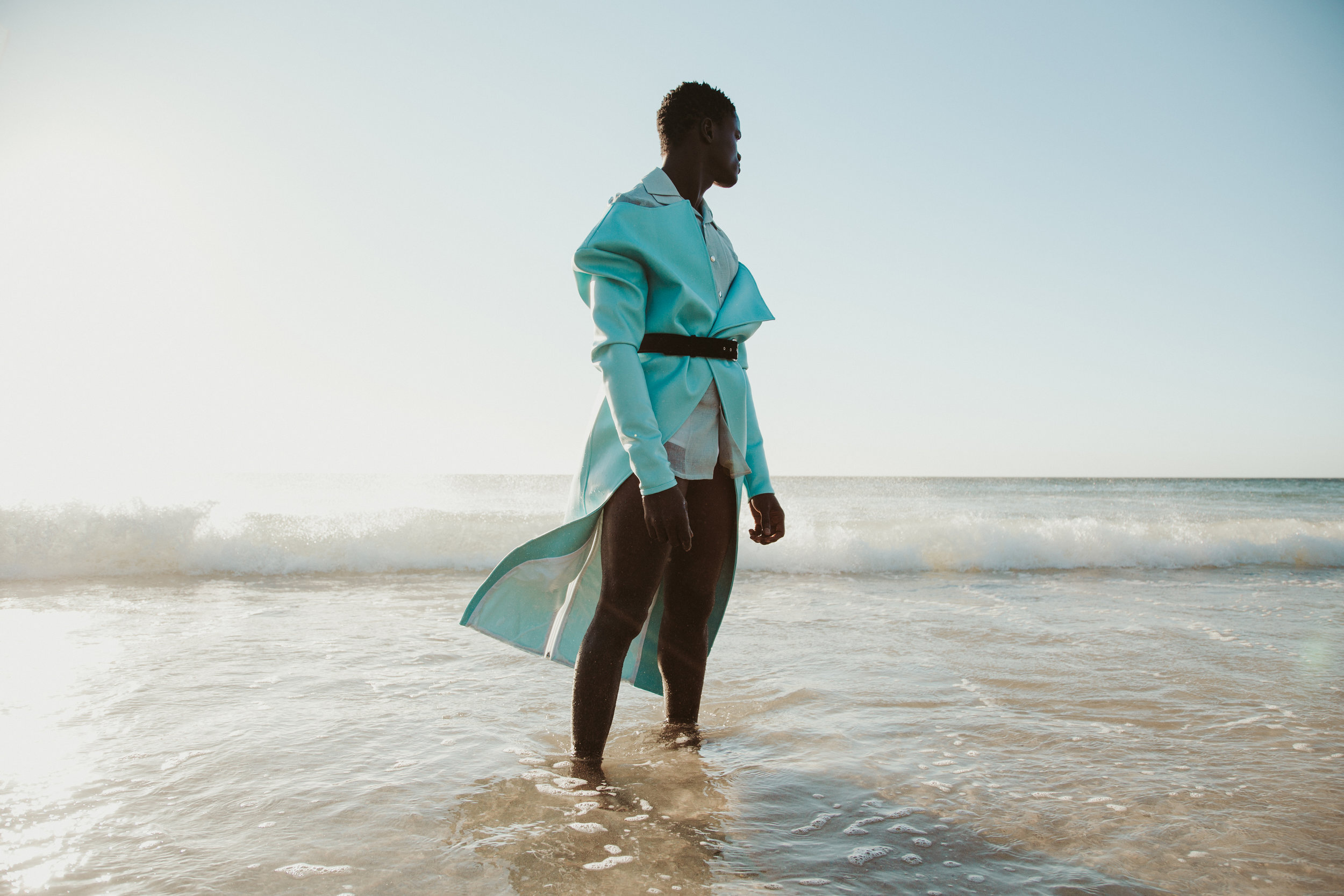
Nao Serati x Adidas 2019. Photo by Michael Oliver Love
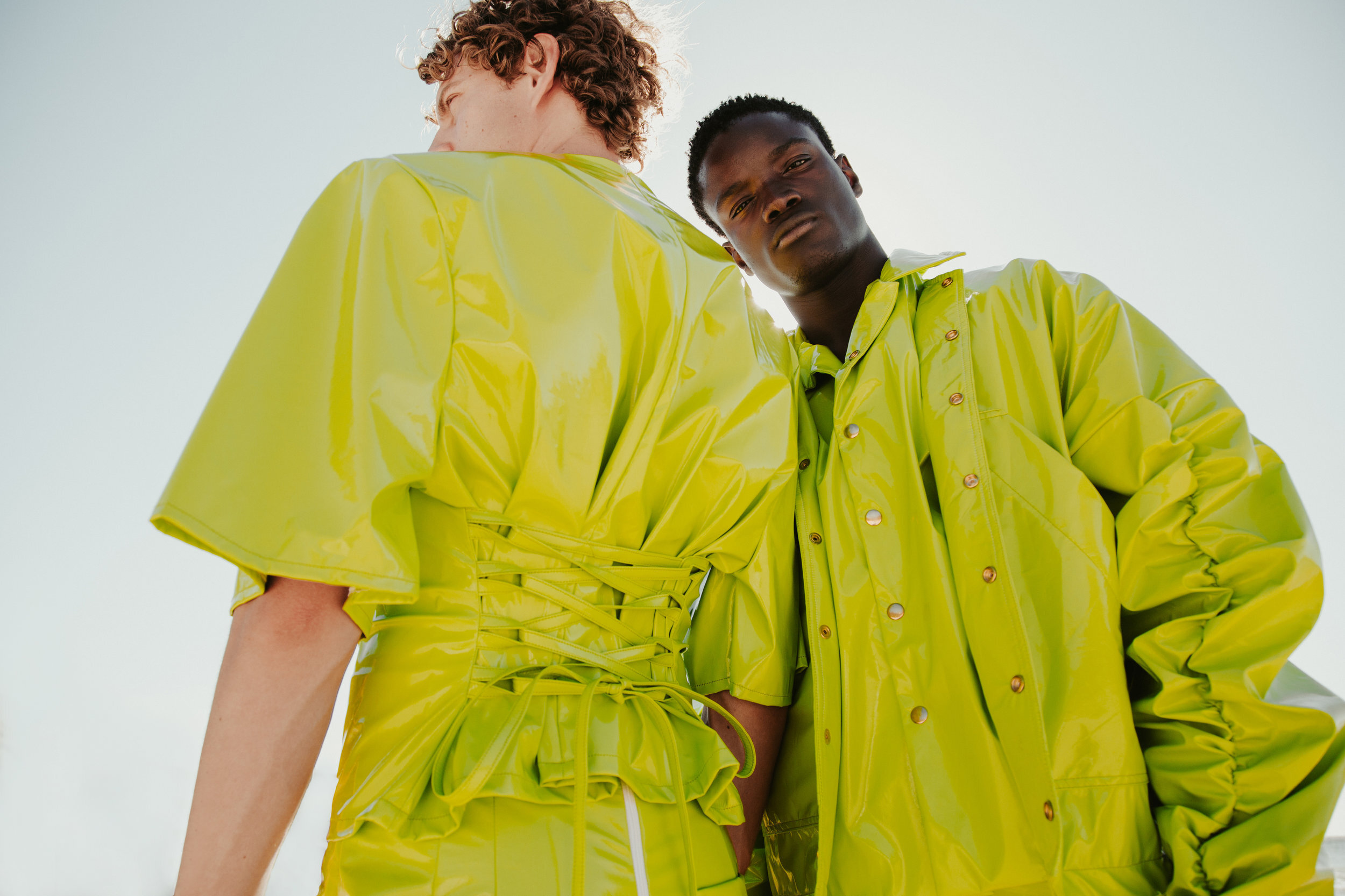
Nao Serati x Adidas 2019. Photo by Michael Oliver Love
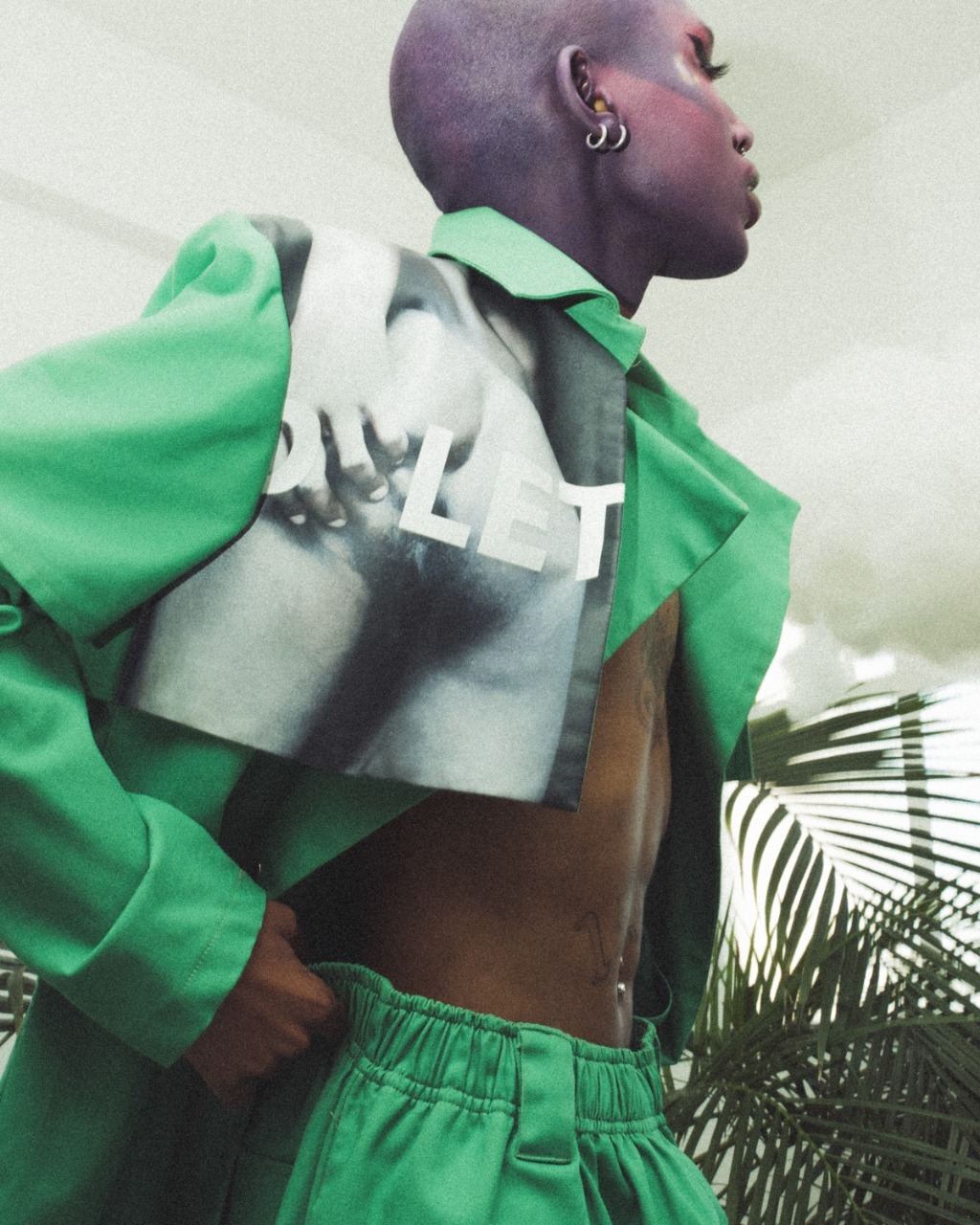
Nao Serati 2020. Photo by Zander Opperman
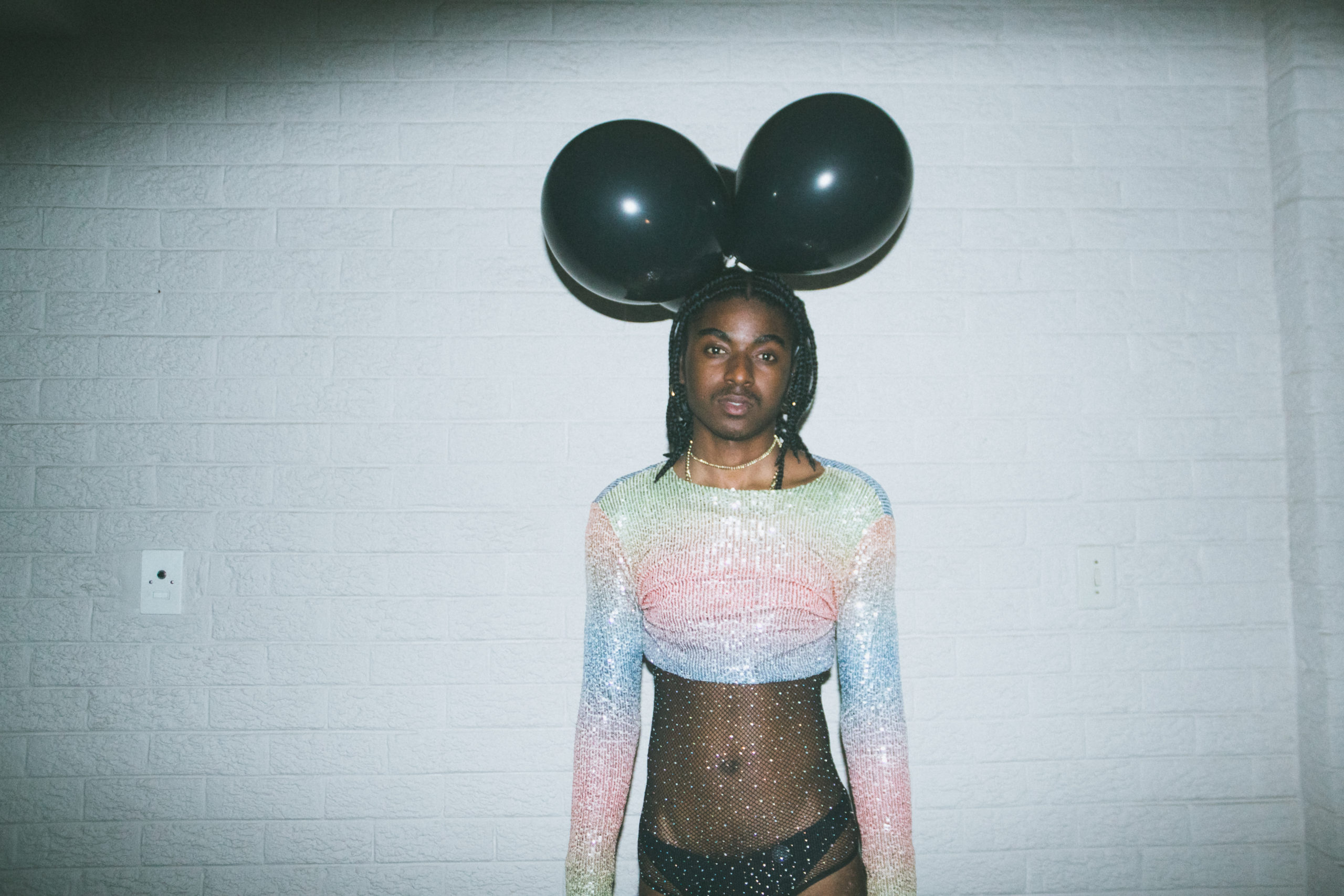
Nao Serati 2020. Photo by Bradley Sekiti
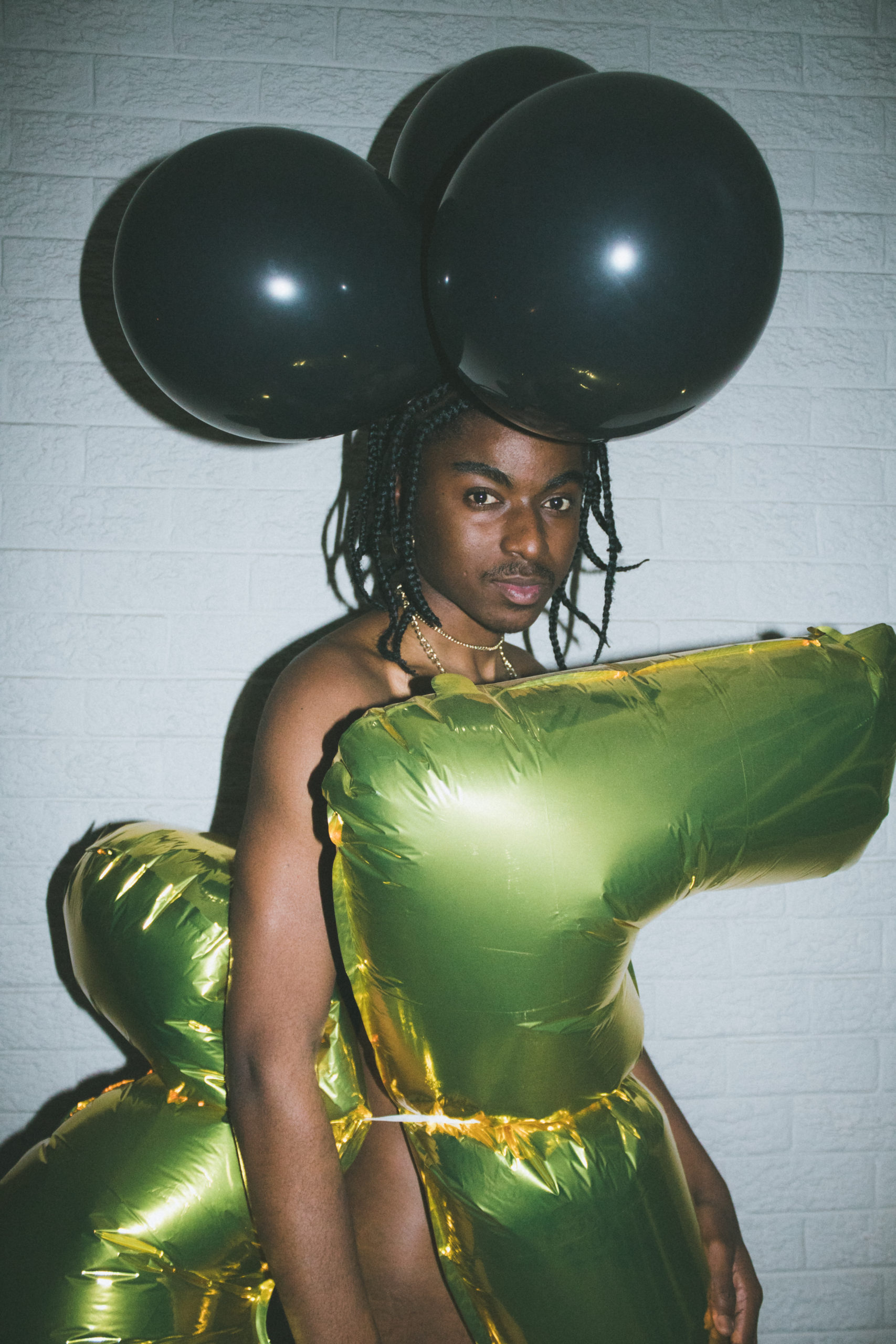
Nao Serati 2020. Photo by Bradley Sekiti
Across both his 2016 spring/summer and autumn/winter presentations at SAMW, the play on gender stereotypes was clear.
Out came the menswear models in shiny fabrics, lace, sleeveless rompers, sleeveless floor-length jumpsuits with shoulder straps, faux fur cropped tops, pants and skirt combos, and images of naked butts on fabrics.
Much of it was striking – experimental even – but not quite the kind of menswear that flies off the shelf in conservative South Africa.
A few years and some collections later, the designer is at a crossroads.
Serati still believes strongly in his brand and the importance of telling “other stories”, but now he makes his living primarily as a stylist – not an altogether unfamiliar story when it comes to South African designers who embrace an edgier signature.
“I almost feel like I’m becoming a costumer, if that makes sense. Because what happens is that I end up making these beautiful garments that excite, but for these big styling jobs,” explains Serati.
At the end of 2019, before coronavirus lockdowns were a reality, he had already decided to take a break from his label.
“I even took pictures off my label’s Instagram page because I wasn’t sure that those are the things I stood for anymore. And I just hadn’t really felt like making clothes; I didn’t feel my purpose.
“I needed time to slow down, to focus and see what I really wanted to do with my clothes. I just happened to show at SAMW 2020 because they invited me and it was a great opportunity. But my actual intention was to take a full year off and close everything down,” he explains.
“But now I’m actually spending more time on my brand – I’m actually making garments for fun; to explore.”
Even though he wasn’t actively pushing his brand, he continued to explore and have fun, collaborating with fellow stylists and photographers and creating lookbooks, such as the one he released in March 2020 for his SAMW collection, which was inspired by a conversation.
“I was talking to this ‘rent boy’ and he sent me photos… so the collection became about that queer space where we sell our bodies and souls to survive.
“I’m still very interested in exploring queer life in my work, because we’re not black and white; we live really intricate, really colourful lives. And there’s more to say and explore in those stories.”
Serati is indeed in a reflective mood, contemplating this period in his life as key in both his personal growth and his brand, which he founded when he was “about 21”.
“I’ve found that I always ended up using some sort of bright shiny fabric or sequins. I can’t tell you why… I think it’s because it’s a happy fabric. I always look for happy, exciting fabrics that say ‘party!’
“But now, with growth, I’m also looking for fabrics that breathe; that are going to last forever. When I was younger I was looking for fun fabrics, but then the older you get you’re like, ‘okay, but I actually can’t breathe in this garment.’
“When you’re 21 you don’t really care about breathing. The look is so much more important than surviving the night,” he jokes.
“I still have to hold myself back from going to the upholstery section in the fabric store. I’m always looking for PVC or things that people make couches with.”
As well as looking for new fabrics, he is currently working on a range of basics to launch by February 2021.
“I want it to be the truest expression of what I really want to make. It’ll be Nao Serati basics… but kind of edgy.”
He is adamant that this will not be a complete departure from his signature look. Even though he took a step back from his brand – because of his decision last year as well as the reality of the pandemic – he keeps an “open studio” in Randburg.
Even as he reimagines his brand, he is aware that he still faces an uphill battle when it comes to the South African market.
He doesn’t think the shortage of customers looking to buy edgier pieces is the result of South Africans not wanting the items, but rather it’s because of a lack of safe spaces.
“We need more spaces; we need more places to go that feel safe enough for anyone to wear those sheer pants, or go out in a sequined thong if they want to. There’s maybe one club in Joburg and one club in Cape Town where you can wear that.
“Between you, your house and that space, there’s nowhere else. You still need to be able to go to a gallery or the mall without being harassed.
“So I feel like the more we grow as a nation, the safer it’ll be for people who want to fully express themselves. But I think we’re getting there, we are lucky enough to have people like FAKA; really creative and interesting people that are starting that movement and helping create safe spaces for others to express themselves,” he says.
“Recently I’ve been hanging around the new kids like the Francescos and the Tamaras of the Internet, and I’m realising that my brand was for these people… these new kids that need a new identity.
“So it’s really exciting for me to see them and have a place to put that energy. I’ve always felt my brand is, like… other? It’s quite strange to just call it ‘other’, but it’s always been a home for newness.
“However, it’s also about finding new people and not having gatekeepers. Even if the person doesn’t have 10,000 followers or whatever. There are a lot of interesting people who aren’t on the Internet.
“Even now in my search for spaces, I’m starting to search ‘in real life’. There are new kids out there who are not actively engaging as much as we do on social media… and if they are on the Internet, they’re gaming and all that kind of stuff.”
Now that the lockdown has eased, more people are popping into Serati’s studio looking for party outfits, and, once again, he is having to negotiate the time he spends between styling jobs, working on a new collection and creating custom outfits.
Although he is excited to be working on his brand, he is wary about the sudden return to partying.
“On a brand level I did feel the pinch, especially as people did not have events to attend. The performers weren’t performing, the party girls weren’t partying. But it’s picking up again; people are more willing to spend money on events, which makes perfect sense.
“But I’m finding that we’re back at an unhealthy place; it’s almost like… a revenge kind of party mode – bigger than before.
“I know it’s human nature, but I thought we were going to take better care of ourselves. We were going to cook and work out and things like that, but I feel like we’re just rushing into the world again.” DM/ML














 Become an Insider
Become an Insider
Comments - Please login in order to comment.